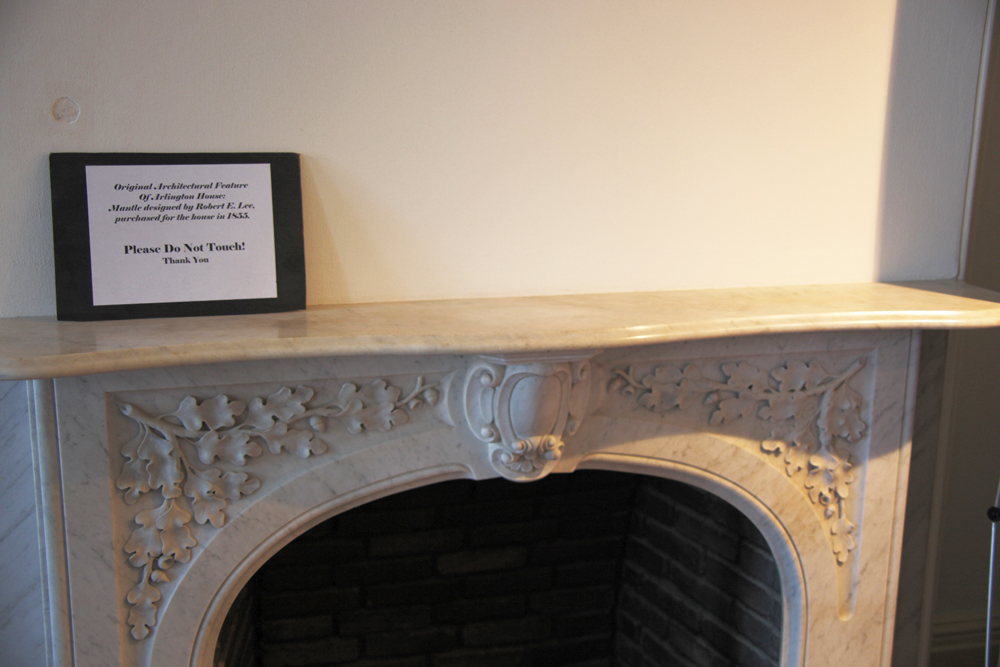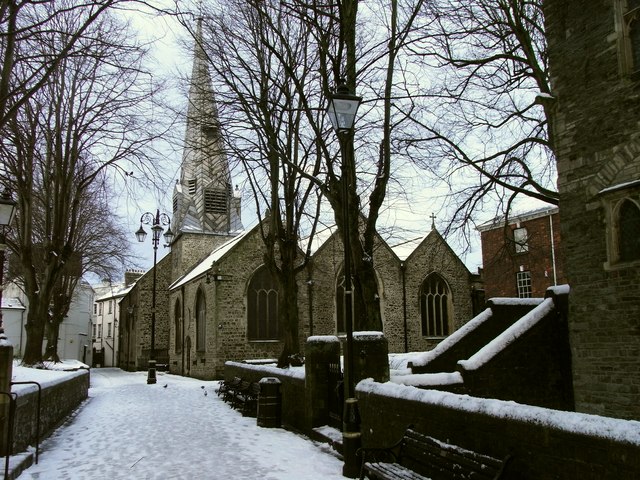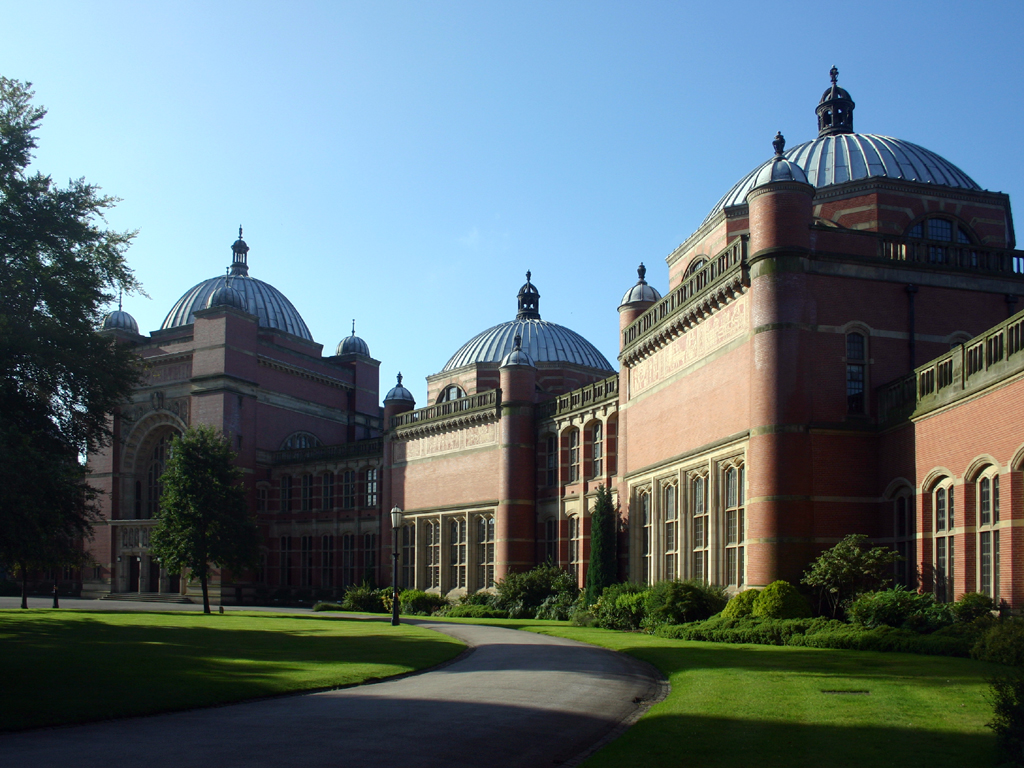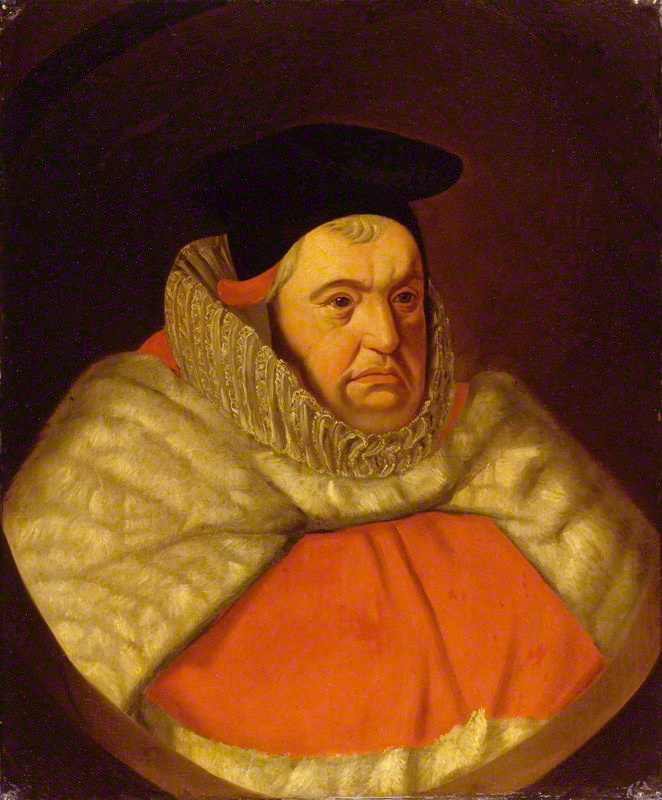|
Gilbert Paige
Gilbert Paige (c. 1595 – 1647) of Crock Street, Barnstaple, and Rookabeare House in the adjoining parish of Fremington, Devon, was a merchant who was twice Mayor of Barnstaple in 1629 and 1641. Landholdings As revealed by his will he owned or leased the following properties: * A house in Crock Street (now Cross Street), Barnstaple, his residence, much favoured by the wealthy merchants of the town, and forming the route from the port and quay to the old guildhall and high cross, both situated on the high street. He bequeathed it to his wife for the term of 50 years. * A house at the high cross, Barnstaple, in the high street at the top of Crock Street, leased to Robert Leyman * A "Tenement at Rookebeare in the parish of Ffremington", which as stated in his will he had bought from his brother. This is the farmhouse now known as "Higher Rookabeare", where there is a strapwork overmantel that bears the initials "GSP" and "WP" and the date 1630. * Garden in Green Lane * Garden ... [...More Info...] [...Related Items...] OR: [Wikipedia] [Google] [Baidu] |
Overmantel
The fireplace mantel or mantelpiece, also known as a chimneypiece, originated in medieval times as a hood that projected over a fire grate to catch the smoke. The term has evolved to include the decorative framework around the fireplace, and can include elaborate designs extending to the ceiling. ''Mantelpiece'' is now the general term for the jambs, mantel shelf, and external accessories of a fireplace. For many centuries, the ''chimneypiece'' was the most ornamental and most artistic feature of a room, but as fireplaces have become smaller, and modern methods of heating have been introduced, its artistic as well as its practical significance has lessened. Where the fireplace continues up the wall with an elaborate construction, as in historic grand buildings, this is known as an overmantel.''OED'' first citation, 1882. Mirrors and paintings designed to be hung above a mantel shelf may be called "mantel mirror", "mantel painting" and so on. History Up to the twelfth century ... [...More Info...] [...Related Items...] OR: [Wikipedia] [Google] [Baidu] |
Businesspeople From Barnstaple
A businessperson, businessman, or businesswoman is an individual who has founded, owns, or holds shares in (including as an angel investor) a private-sector company. A businessperson undertakes activities (commercial or industrial) for the purpose of generating cash flow, sales, and revenue by using a combination of human, financial, intellectual An intellectual is a person who engages in critical thinking, research, and reflection about the reality of society, and who proposes solutions for the normative problems of society. Coming from the world of culture, either as a creator or a ..., and physical capital with a view to fueling economic development and growth. History Prehistoric period: Traders Since a "businessman" can mean anyone in industry or commerce, businesspeople have existed as long as industry and commerce have existed. "Commerce" can simply mean "trade", and trade has existed through all of recorded history. The first businesspeople in human hist ... [...More Info...] [...Related Items...] OR: [Wikipedia] [Google] [Baidu] |
Mayors Of Barnstaple
In many countries, a mayor is the highest-ranking official in a municipal government such as that of a city or a town. Worldwide, there is a wide variance in local laws and customs regarding the powers and responsibilities of a mayor as well as the means by which a mayor is elected or otherwise mandated. Depending on the system chosen, a mayor may be the chief executive officer of the municipal government, may simply chair a multi-member governing body with little or no independent power, or may play a solely ceremonial role. A mayor's duties and responsibilities may be to appoint and oversee municipal managers and employees, provide basic governmental services to constituents, and execute the laws and ordinances passed by a municipal governing body (or mandated by a state, territorial or national governing body). Options for selection of a mayor include direct election by the public, or selection by an elected governing council or board. The term ''mayor'' shares a linguistic ... [...More Info...] [...Related Items...] OR: [Wikipedia] [Google] [Baidu] |
Will Of Gilbert I Paige (d
Will may refer to: Common meanings * Will and testament, instructions for the disposition of one's property after death * Will (philosophy), or willpower * Will (sociology) * Will, volition (psychology) * Will, a modal verb - see Shall and will People and fictional characters * Will (comics) (1927–2000), a comic strip artist * Will (given name), a list of people and fictional characters named Will or Wil * Will (surname) * Will (Brazilian footballer) (born 1973) Arts, entertainment, and media Films * '' Will: G. Gordon Liddy'', a 1982 TV film * ''Will'' (1981 film), an American drama * ''Will'' (2011 film), a British sports drama * '' Bandslam'', a 2008 film with the working title ''Will'' Literature * ''Will'' (novel), by Christopher Rush * ''Will'', an autobiography by G. Gordon Liddy Music * Will (band), a Canadian electronic music act * ''Will'' (Julianna Barwick album), a 2016 album by Julianna Barwick * ''Will'' (Leo O'Kelly album), a 2011 album by Leo O'K ... [...More Info...] [...Related Items...] OR: [Wikipedia] [Google] [Baidu] |
Probate
Probate is the judicial process whereby a will is "proved" in a court of law and accepted as a valid public document that is the true last testament of the deceased, or whereby the estate is settled according to the laws of intestacy in the state of residence of the deceased at time of death in the absence of a legal will. The granting of probate is the first step in the legal process of administering the estate (law), estate of a deceased person, resolving all claims and distributing the deceased person's property under a will. A probate court decides the legal validity of a testator's (deceased person's) will and grants its approval, also known as granting probate, to the executor. The probated will then becomes a legal instrument that may be enforced by the executor in the law courts if necessary. A probate also officially appoints the executor (or personal representative), generally named in the will, as having legal power to dispose of the testator's assets in the manner sp ... [...More Info...] [...Related Items...] OR: [Wikipedia] [Google] [Baidu] |
St Peter's Church, Barnstaple
St Peter's Church is the parish church of the town of Barnstaple in North Devon, England. Parts of the church date to the 13th-century with much restoration during the Victorian era by George Gilbert Scott and later by his son John Oldrid Scott which changed the atmosphere of the building, although many fine wall monuments and tablets remain. The church comes under the Diocese of Exeter. History Æthelstan is said to have granted Barnstaple its first Charter in 930 AD and it is believed a church may have existed here then. The town received subsequent Charters in 1154, 1189, 1201 and 1273. The first recorded Rector was Walter Treasurer of Exeter (1257) and the first stone church probably dates from this time.David Spurr, ''Devon Churches: Bideford, Barnstaple and the Hartland Peninsula'' Vol 1, Merlin Books (1983) pg 15-16 Fragments of the tower are late 13th-century, as are parts of the chancel, although the latter was raised and widened when the north and south aisles were add ... [...More Info...] [...Related Items...] OR: [Wikipedia] [Google] [Baidu] |
Richard Beaple
Richard Beaple (1564– 30 December 1643) of Barnstaple, Devon, was a wealthy merchant, ship owner and member of the Spanish Company, and was three times Mayor of Barnstaple in 1607, 1621 and 1635. His elaborate mural monument survives in St Peter's Church, Barnstaple. Origins He was one of the four sons of James Beaple (died 1616) of Barnstaple (son of Walter Beaple of Barnstaple), Mayor of Barnstaple in 1593 and 1604, by his first wife Elizabeth Goldsmith.Vivian, p.81 His uncle was Roger Beaple (1540–1604), a tanner who was twice Mayor of Barnstaple, in 1590 and 1599.Lamplugh, List of Mayors, p.156 His two sisters Anne and Joane married into the prominent Barnstaple mercantile families of Delbridge and Horwood respectively. The first recorded member of the Beaple family to have occupied the position of mayor was John Beaple, Mayor in 1559.Lamplugh, List of Mayors, p.155 Career In August 1598 Beaple was elected a Common Councilman in place of Roger Cade, who was "put out for ... [...More Info...] [...Related Items...] OR: [Wikipedia] [Google] [Baidu] |
Nikolaus Pevsner
Sir Nikolaus Bernhard Leon Pevsner (30 January 1902 – 18 August 1983) was a German-British art historian and architectural historian best known for his monumental 46-volume series of county-by-county guides, ''The Buildings of England'' (1951–74). Life Nikolaus Pevsner was born in Leipzig, Saxony, the son of Anna and her husband Hugo Pevsner, a Russian-Jewish fur merchant. He attended St. Thomas School, Leipzig, and went on to study at several universities, Munich, Berlin, and Frankfurt am Main, before being awarded a doctorate by Leipzig in 1924 for a thesis on the Baroque architecture of Leipzig. In 1923, he married Carola ("Lola") Kurlbaum, the daughter of distinguished Leipzig lawyer Alfred Kurlbaum. He worked as an assistant keeper at the Dresden Gallery between 1924 and 1928. He converted from Judaism to Lutheranism early in his life. During this period he became interested in establishing the supremacy of German modernist architecture after becoming aware of Le ... [...More Info...] [...Related Items...] OR: [Wikipedia] [Google] [Baidu] |
Strapwork
In the history of art and design, strapwork is the use of stylised representations in ornament of ribbon-like forms. These may loosely imitate leather straps, parchment or metal cut into elaborate shapes, with piercings, and often interwoven in a geometric pattern. In early examples there may or may not be three-dimensionality, either actual in curling relief ends of the elements, or just represented in two dimensions. As the style continued, these curling elements became more prominent, often turning into scrollwork, where the ends curl into spirals or scrolls. By the Baroque scrollwork was a common element in ornament, often partly submerged by other rich ornament. European strapwork is a frequent background and framework for grotesque ornament – arabesque or candelabra figures filled with fantastical creatures, garlands and other elements – which were a frequent decorative motif in 16th-century Northern Mannerism, and revived in the 19th century and which may appear on ... [...More Info...] [...Related Items...] OR: [Wikipedia] [Google] [Baidu] |
Barnstaple
Barnstaple ( or ) is a river-port town in North Devon, England, at the River Taw's lowest crossing point before the Bristol Channel. From the 14th century, it was licensed to export wool and won great wealth. Later it imported Irish wool, but its harbour silted up and other trades developed such as shipbuilding, foundries and sawmills. A Victorian market building survives, with a high glass and timber roof on iron columns. The parish population was 24,033 at the 2011 census, and that of the built-up area 32,411 in 2018. The town area with nearby settlements such as Bishop's Tawton, Fremington and Landkey, had a 2020 population of 46,619. Toponymy The spelling Barnstable is obsolete, but retained by an American county and city. It appears in the 10th century and is thought to derive from the Early English ''bearde'', meaning "battle-axe", and ''stapol'', meaning "pillar", i. e. a post or pillar to mark a religious or administrative meeting place. The derivation from ''staple' ... [...More Info...] [...Related Items...] OR: [Wikipedia] [Google] [Baidu] |
John Doddridge
Sir John Doddridge (akas: Doderidge or Dodderidge; 1555–1628) was an English lawyer, appointed Justice of the King's Bench in 1612 and served as Member of Parliament for Barnstaple in 1589 and for Horsham in 1604.Fuidge He was also an antiquarian and writer. He acquired the nickname "the sleeping judge" from his habit of shutting his eyes while listening intently to a case. As a lawyer he was influenced by humanist ideas, and was familiar with the ideas of Aristotle, and the debates of the period between his followers and the Ramists. He was a believer in both the rationality of the English common law and in its connection with custom. He was one of the ''Worthies of Devon'' of the biographer John Prince (d.1723). Origins His father was Richard Doddridge, merchant, of Barnstaple. The family took its name from a manor in the parish of Sandford, near Crediton. Richard was the son of a wool merchant and was born in South Molton where he married. With his wife and eight children ... [...More Info...] [...Related Items...] OR: [Wikipedia] [Google] [Baidu] |






